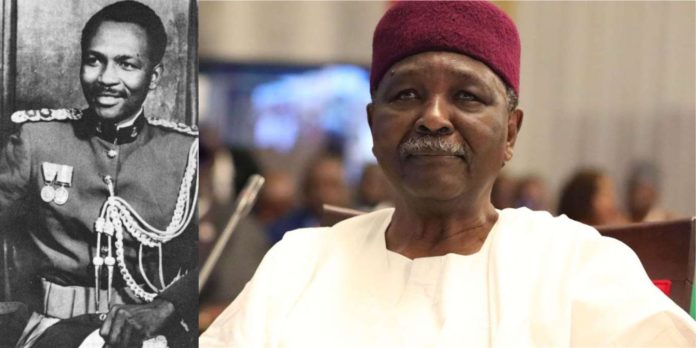Former Nigerian Head of State, General Yakubu Gowon (retd.), has insisted that the Biafra War was never aimed at the Igbo people but rather against those who took up arms to break Nigeria apart.
Speaking during an interview on a television, Gowon explained that the war effort under his leadership was directed at stopping secession and preserving the country’s unity, not targeting any ethnic group.
He said the Nigerian military was given strict orders to protect civilians, especially women and children, while engaging only those who posed a threat by taking up arms against the government.
“I had a responsibility and duty as a loyal Nigerian to keep the country whole. From the beginning, I ensured that this was not a war against Igbos as such, but one to stop the breaking up of Nigeria.”
“I gave a code of conduct of how the operations were to go; soldiers on the Nigerian side were to protect the people, especially women and children, and take up arms only against those who had taken arms against them. The number of people who were casualties of the war is not in millions. The other side also refused all attempts to send aid into their camp.”
“I think I have said that if the East does not break up from Nigeria, yes, and that was what I kept on saying, what I keep on saying, that if the East does not break up from Nigeria, I say, no, I have a responsibility to keep Nigeria, and as far as I’m concerned, that is my teaching.”
“And I won’t, but if the situation gets to this stage, when I have to choose between allowing the people to break up, you know, or having people to stop it, well, it would freeze the country. You know, I know where my responsibility is, because I have my loyalty, that loyalty, to the country.”
Recall that the Biafra War, also known as the Nigerian Civil War, lasted from July 6, 1967, to January 13, 1970.
It began after the Eastern Region of Nigeria, led by Lt. Colonel Odumegwu Ojukwu, declared independence as the Republic of Biafra following ethnic violence and political unrest, especially against the Igbo people.
The Nigerian government under Gowon rejected the secession, leading to a brutal conflict. The war caused widespread devastation, particularly in Biafra, where a blockade led to mass starvation.
Over 1million civilians, mostly children, died from hunger and disease, and total casualties are estimated between one and three million.
Despite strong resistance, Biafra surrendered in January 1970. The federal government declared “no victor, no vanquished” and initiated a reconciliation process.
However, the war left deep scars and long-lasting ethnic and regional tensions in Nigeria, especially among the Igbo, who felt marginalised before, during, and after the conflict.

